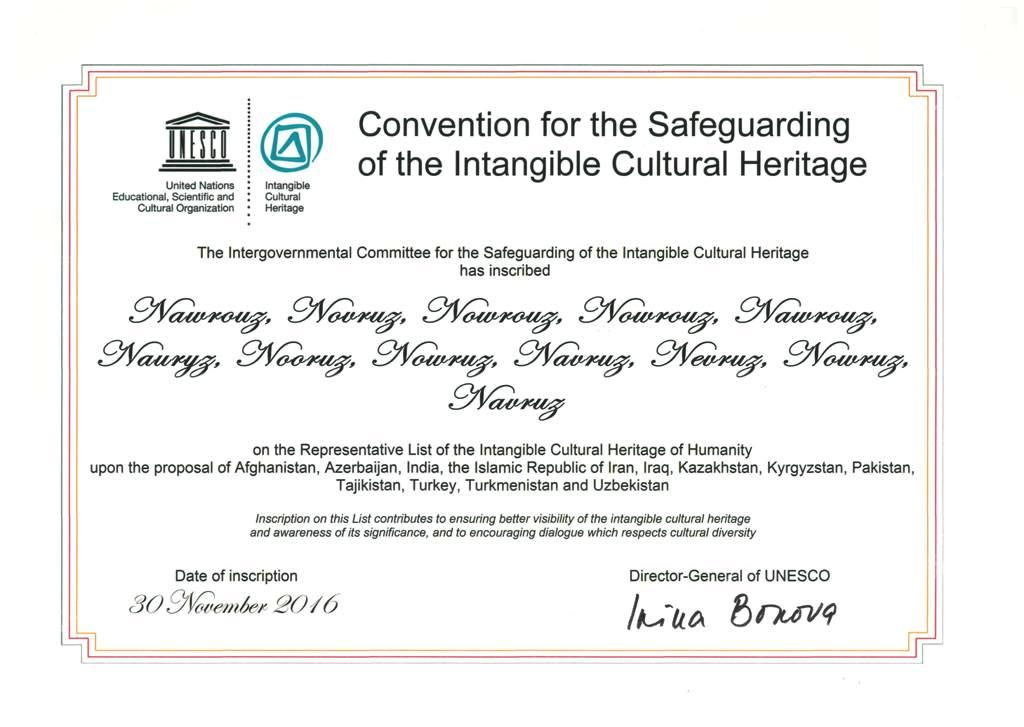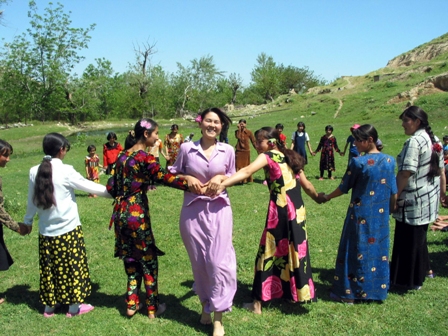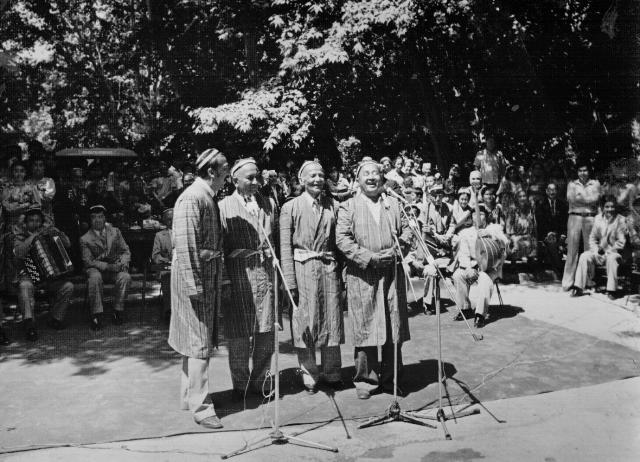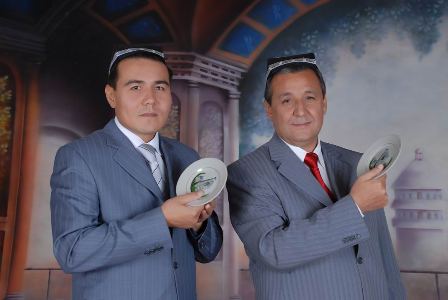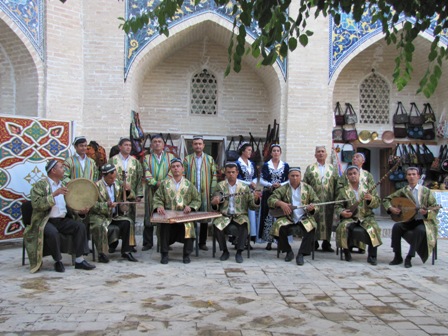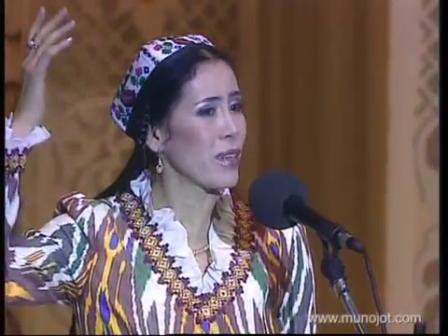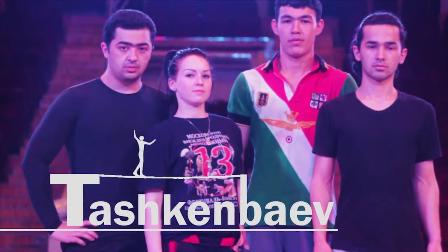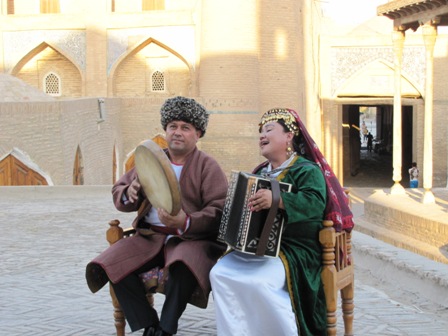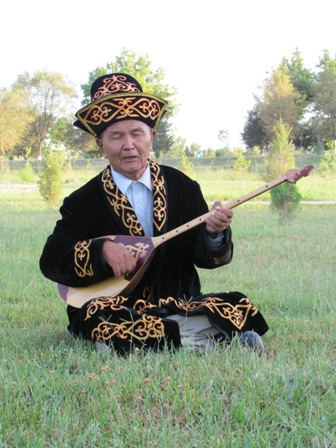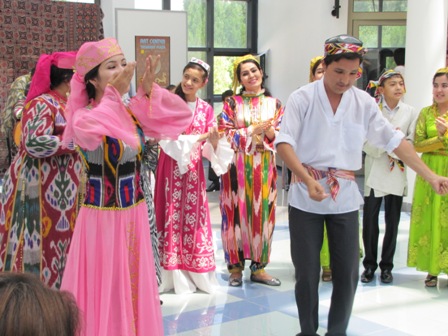Navruz
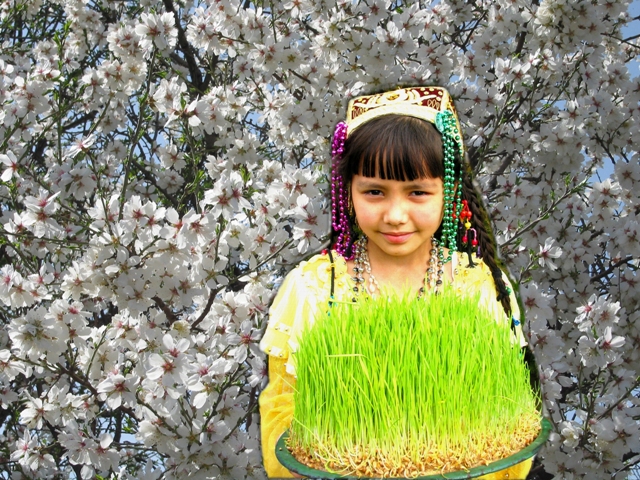
Navruz is a new day, a majestic day in the lives of the people. It is the festivity, the first day of solar calendar. It is the most ancient holiday of the peoples living in Central Asia and the East. The day of Navruz festivity matches with that of spring equinox (21 or 22 March), i.e. when the sun enters the constellation of Aries.
In addition, Navruz is considered to be the festivity which celebrates the beginning of agricultural works. As a rule, during Navruz folk promenades were organized, delicious foods with use of fresh greens were prepared, sowing of some crops was initiated. Originally it was the custom among farmers to celebrate Navruz festivity. Later on, however, it got spread among settled and nomadic Turkic peoples. And over the centuries different nations adapted it to their way of live and ideology.
According to written sources, Navruz was one of the biggest festivities among Turkic peoples. Mahmud al-Kashgari in his work called "Diwanu l-Lugat al-Turk" mentions about many folk songs, which were dedicated to Navruz. Also, the information about Navruz festivity can be found in such works as "The remaining traces of past centuries" (written by Abu Rayhan al-Biruni), "Navruzname" (by Omar Khayyam), and those written by Alisher Navoi, Zahir-ud-Din Muhammad Babur and other scholars.
In the territory of Central Asia Navruz festivity was associated with the beginning of the New Year. As such, the preparations for it began several days ahead. Wheat was germinated and from its sprouts sumalak was cooked, dumplings with greens and samosas with mint were prepared. Also folk games were organized (such as horseracing, uloq, kurash, etc.), promenades were arranged, songs about spring were sung, terma and dostons were performed (by bakhshis). On the first day of Navruz children, living in rural areas, gathered in groups and sang songs dedicated to Navruz before the doors of houses. And the owner of the house, hearing these songs, came out, gave presents to children, and treated them with food. In their turn, children distributed one part of the food among widows and orphans living in the village. This custom is now preserved in some villages of Samarkand and Jizzakh regions.
Navruz was considered not only the festivity of the New Year, but also the festivity of labor.
During Soviet times, Navruz was banned along with other religious festivities and rituals without any reasons. And only after Uzbekistan gained Independence, celebration of Navruz festivity (together with other things) was revived, thereby acquiring a new essence and content.
In Uzbekistan Navruz is one of the most beloved festivities of Uzbek peoples. Notably, the day of Navruz, i.e. 21 March, was announced as a rest day. Each year on this day festive promenades and concerts are organized in the parks and squares across the country. Moreover, in mahallas in the course of several days festive events dedicated to Navruz are organized, sumalak, halim and other delicious foods are prepared. During the days of Navruz hokimiyats, activists of mahallas, and charities visit orphanages, war and labor veterans. They congratulate them with Navruz festivity and give them their presents. In general, it could be told that songs and dishes, sumalak (sumalak sayli), tulip (lola sayli) and flower (gul sayli) festivals, various performances, folk games (kopkari, kurash), competitions, rituals (snowdrop ritual), etc., are all essential components of Navruz festivity.
It bears mentioning that Navruz became one of the elements, which was inscribed on the UNESCO List of Intangible Cultural Heritage of the Humanity. Representing part of the history and culture of our people, Navruz, besides being ancient, is considered to be a majestic and wonderful festivity that is reinterpreted and reconsidered by us every year.





